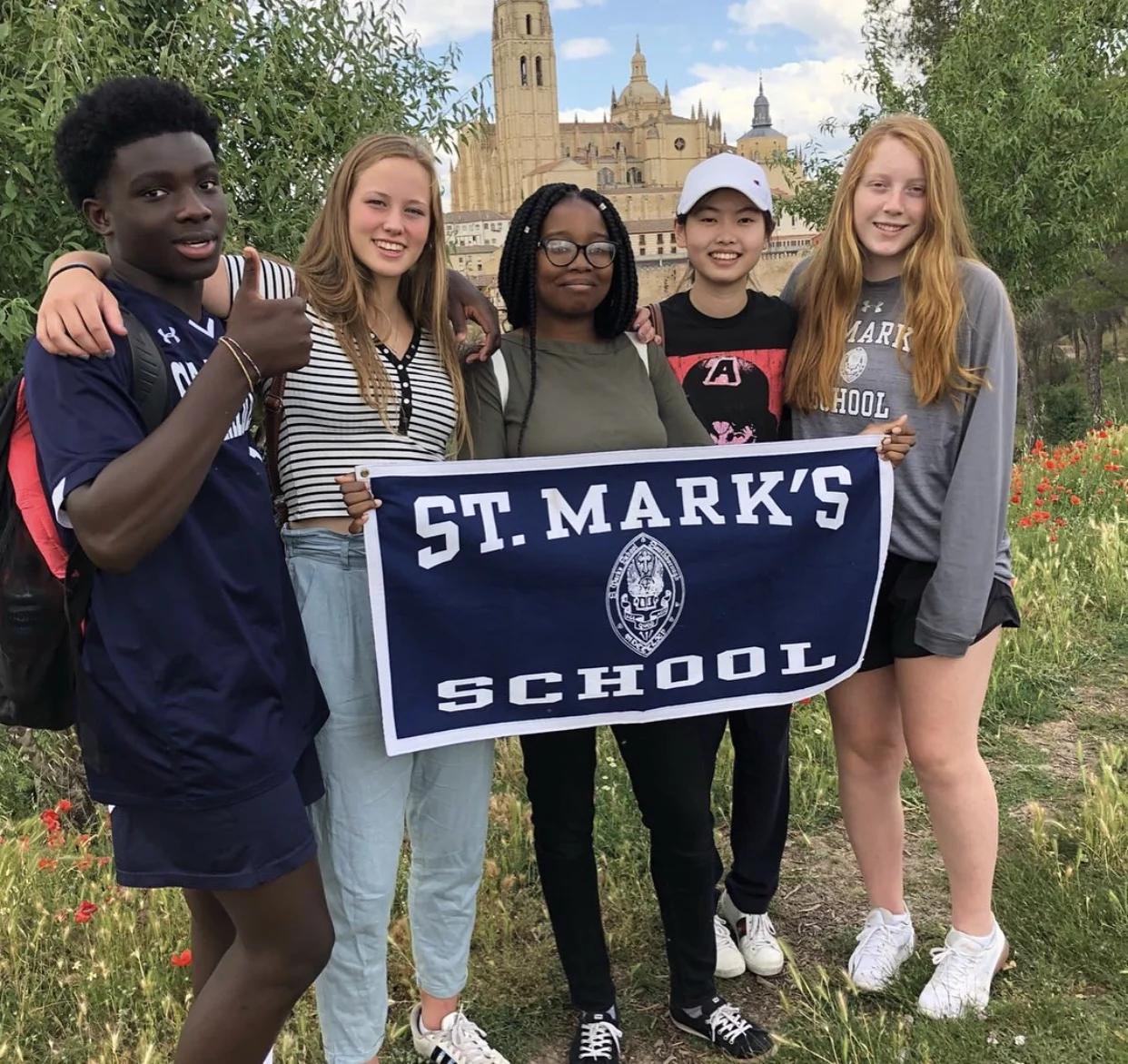by Lindsay Davis ‘21
Over the summer, I traveled to Chile through the Chilean Exchange Program. I went there with three St. Mark’s students, my Spanish teacher, Sr. Cifuentes, and my religion teacher, Ms. Hultin. I was inspired to join the Chilean Summer Program because of the opportunity to practice my Spanish. I wanted to be fully engrossed in the culture and to have a chance to speak with and listen to native speakers.
Our group of Americans, or “gringas” as the Chileans would say, began our trip with an amazing four-day excursion to San Pedro, which is a rural town in the Atacama Desert. After that we flew into Santiago to meet our host families, with whom we would live for the next three weeks. I had an incredible family who was very welcoming: one of my Chilean sisters even gave her bedroom to me. Since I loved the hike in San Pedro, my host family made sure to take me hiking on a trail where we are able to overlook the city. I met their entire extended family, and I really enjoyed having traditional Chilean meals with them, such as empanadas. I was even able to ski in the Andes.
During our time in Chile, we went to The Grange School to study. Since I was in a different grade than the other “gringas,” I had very little chance to talk with them in English. Therefore, I had to jump out of my comfort zone and make friends with the locals who predominantly speak Spanish. As a result, the first few days were very challenging for me. After the first week I was able to have a short conversation in Spanish with my new Chilean friends and host family. My host family was constantly helping me with my vocabulary and grammar, and they took good care of me during my time there. I will never forget the bonds I made with friends and my host family in Chile. I am so looking forward to seeing them at St. Mark’s in winter.
by Anu Akibu ‘20
Overall, I enjoyed my trip to Spain which was organized by an institute called Instituto San Pedro. I lived with Rebecca and Paula. Our host family was very gracious and accommodating. They made our homestay experience comfortable and enjoyable. My host family taught us about Segovia and Spain. Surprisingly, their son was a Monitor in our program which made our transition to life in Spain much easier. It was also beneficial that he understood both English and Spanish and he helped mitigate the barriers with our host parents. Our host family always had lunch and dinner together. I especially loved our conversation after the meal, which helped me improve my conversational skills and develop close relationships with them. What I loved the most was that my host family introduced us to many traditional Spanish dishes and desserts. I appreciated my host family for this because I did not want them to feel as if they had to provide us our usual meals.
I do wish there had been more free time because we were constantly busy. Our schedule consisted of going to school, a historical monument, or to tutor Spanish children. Generally our school began at 10:30 am and ended around 1:40 pm, sometimes later depending on the class. After school we were able to have an hour of rest until 4:15 pm, then we had to go to the Aqueduct for our daily excursion. We wouldn't really have free time until 6:30 pm, however we had to tutor kids from 7:15 pm until 9:30 pm. Finally, when we were done with our commitments we would get home around 10 pm and have dinner. Dinners ranged from 1-2 hours, which included preparation, thus going to bed around 11 p.m. or later.
Although life in Spain was busy, I still appreciate the independence we were given. We rode the bus by ourselves to school and to the Aqueduct every weekday. We would usually meet at the Aqueduct whenever we felt like going on an excursion near Plaza Mayor. As a result, we became accustomed to those places and discovered new spots where we could explore and have amazing food during our free time.


